Christoph Berger
Confidence-based Out-of-Distribution Detection: A Comparative Study and Analysis
Jul 06, 2021
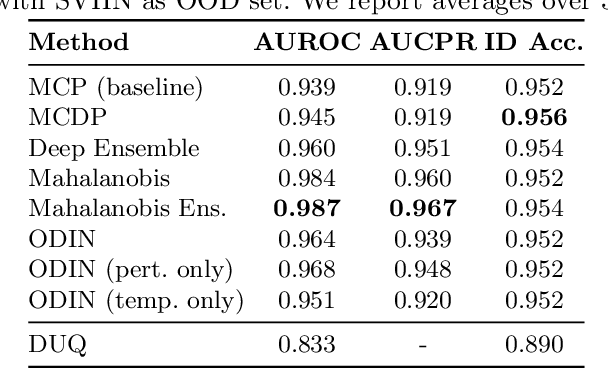
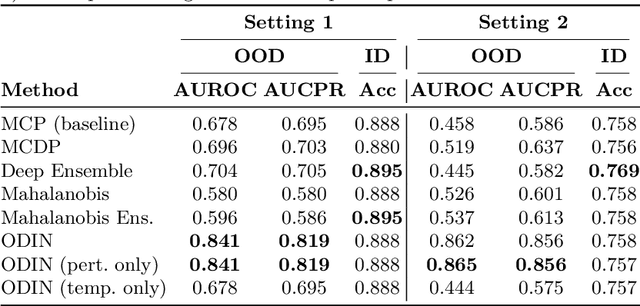

Abstract:Image classification models deployed in the real world may receive inputs outside the intended data distribution. For critical applications such as clinical decision making, it is important that a model can detect such out-of-distribution (OOD) inputs and express its uncertainty. In this work, we assess the capability of various state-of-the-art approaches for confidence-based OOD detection through a comparative study and in-depth analysis. First, we leverage a computer vision benchmark to reproduce and compare multiple OOD detection methods. We then evaluate their capabilities on the challenging task of disease classification using chest X-rays. Our study shows that high performance in a computer vision task does not directly translate to accuracy in a medical imaging task. We analyse factors that affect performance of the methods between the two tasks. Our results provide useful insights for developing the next generation of OOD detection methods.
Are we using appropriate segmentation metrics? Identifying correlates of human expert perception for CNN training beyond rolling the DICE coefficient
Mar 10, 2021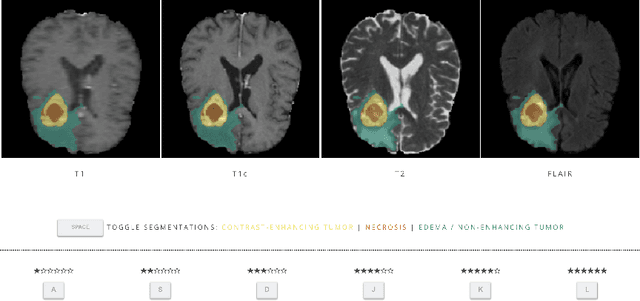
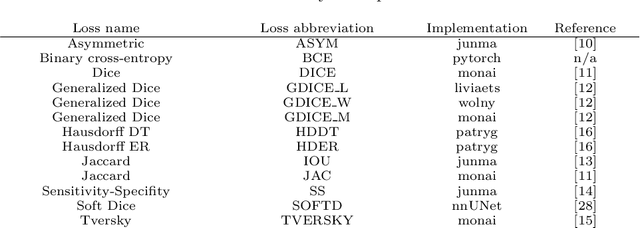
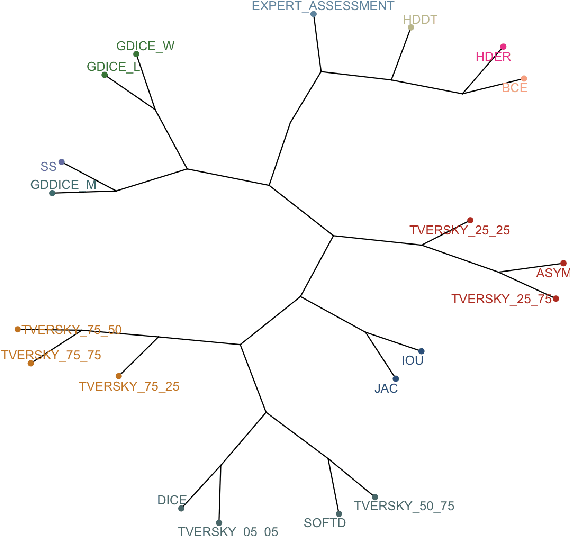

Abstract:In this study, we explore quantitative correlates of qualitative human expert perception. We discover that current quality metrics and loss functions, considered for biomedical image segmentation tasks, correlate moderately with segmentation quality assessment by experts, especially for small yet clinically relevant structures, such as the enhancing tumor in brain glioma. We propose a method employing classical statistics and experimental psychology to create complementary compound loss functions for modern deep learning methods, towards achieving a better fit with human quality assessment. When training a CNN for delineating adult brain tumor in MR images, all four proposed loss candidates outperform the established baselines on the clinically important and hardest to segment enhancing tumor label, while maintaining performance for other label channels.
ModelHub.AI: Dissemination Platform for Deep Learning Models
Nov 26, 2019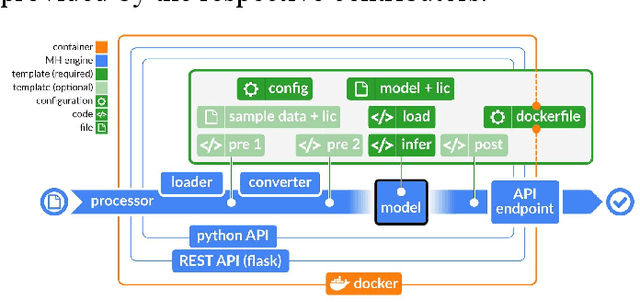
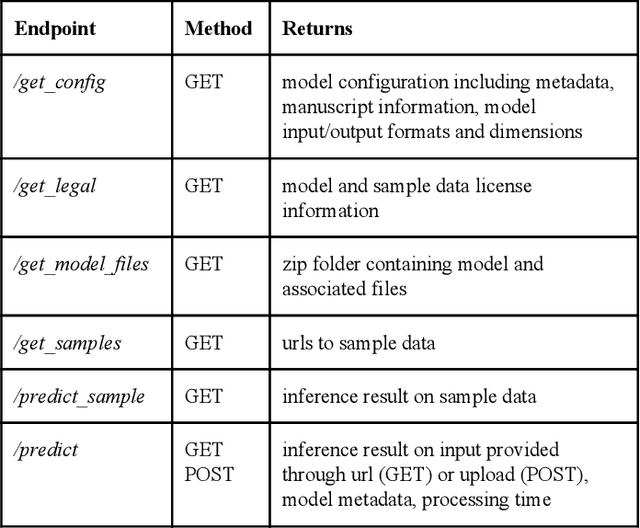

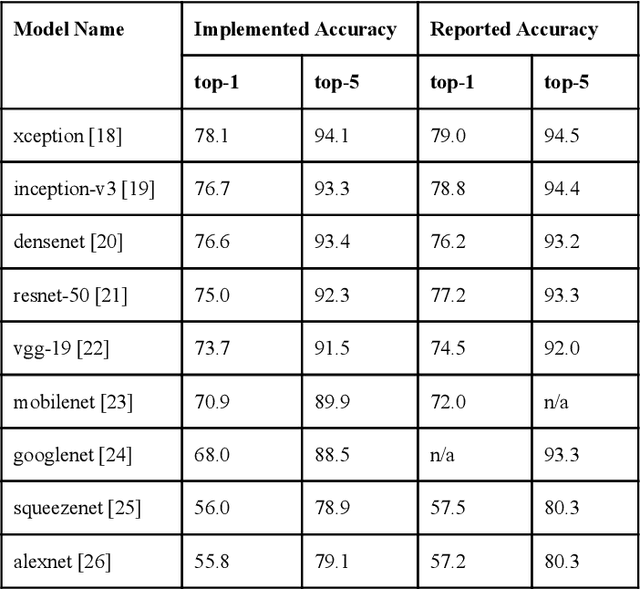
Abstract:Recent advances in artificial intelligence research have led to a profusion of studies that apply deep learning to problems in image analysis and natural language processing among others. Additionally, the availability of open-source computational frameworks has lowered the barriers to implementing state-of-the-art methods across multiple domains. Albeit leading to major performance breakthroughs in some tasks, effective dissemination of deep learning algorithms remains challenging, inhibiting reproducibility and benchmarking studies, impeding further validation, and ultimately hindering their effectiveness in the cumulative scientific progress. In developing a platform for sharing research outputs, we present ModelHub.AI (www.modelhub.ai), a community-driven container-based software engine and platform for the structured dissemination of deep learning models. For contributors, the engine controls data flow throughout the inference cycle, while the contributor-facing standard template exposes model-specific functions including inference, as well as pre- and post-processing. Python and RESTful Application programming interfaces (APIs) enable users to interact with models hosted on ModelHub.AI and allows both researchers and developers to utilize models out-of-the-box. ModelHub.AI is domain-, data-, and framework-agnostic, catering to different workflows and contributors' preferences.
 Add to Chrome
Add to Chrome Add to Firefox
Add to Firefox Add to Edge
Add to Edge